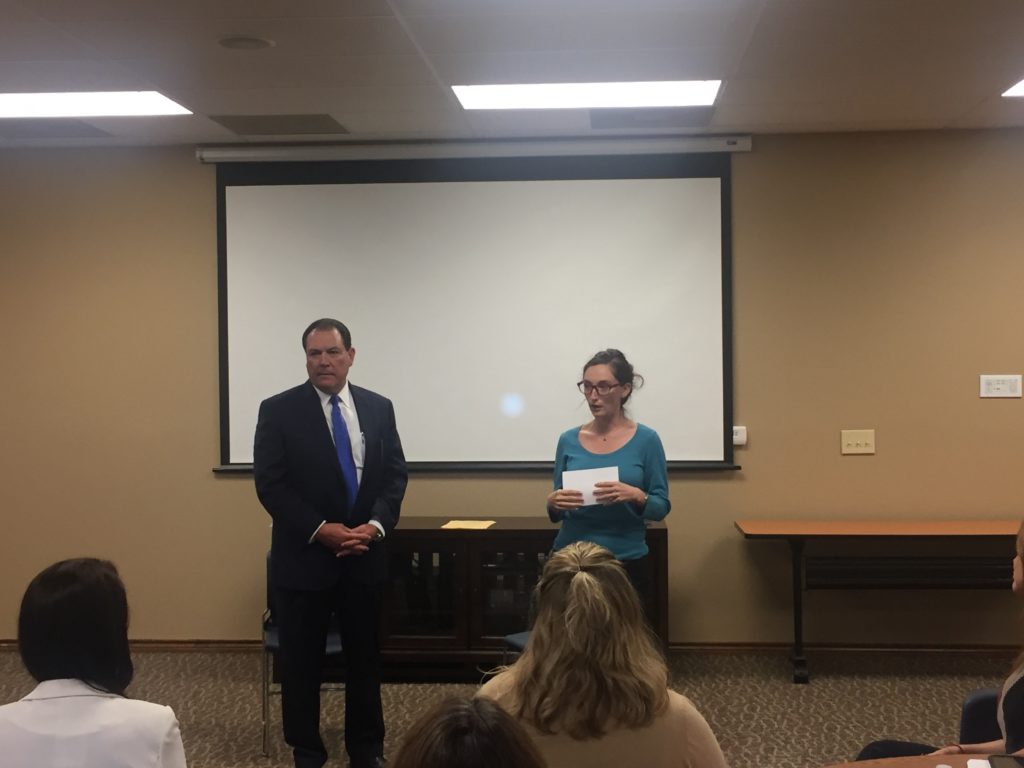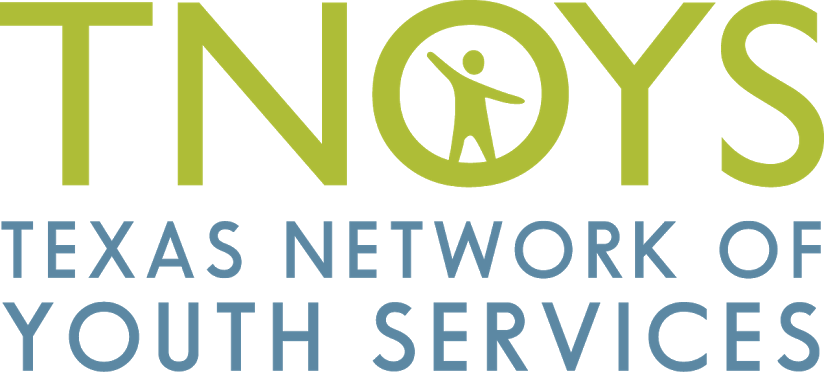
TNOYS Executive Director Christine Gendron introduces DFPS Commissioner Hank Whitman at an exclusive event for TNOYS members to meet the commissioner
TNOYS was pleased to host a small gathering last week for leaders of our member organizations to meet and hear from Texas Department of Children and Family Services Commissioner Hank Whitman. Whitman took on his new role earlier this year, after having served for 22 years with the Department of Public Safety and being named the Chief of the Texas Rangers.
Perspectives From a Career in Law Enforcement
In remarks to the group, Whitman recognized that many in that state had questioned someone with a law enforcement background taking on the role of DFPS commissioner. But, he shared that many of the lessons he learned in his law enforcement career also apply at DFPS, and spoke of the many parallels between the work of a DFPS caseworker and a law enforcement investigator.
In particular, he addressed the issues the department is having handling the volume of child welfare cases it is confronted with. Whitman said you can’t just look at the number of cases caseworkers have, you also have to look at how complex they are. Just as he has seen with police investigations, some child welfare cases are open and shut and can be easily handled, while others are more complex and create a much bigger workload. So, the complexity of a case must be considered when determining how many to assign to a caseworker.
“I Am Not the Same Man I Was Six Months Ago”
But even as Whitman drew on the benefits of his past work experience, he stressed how much he has learned and changed since joining DFPS. As he said, “I am not the same man I was six months ago. From a hardened investigator, I’ve gotten pretty soft.”
He spoke of his experiences meeting with youth in foster care and those who have aged out, many of whom have experienced homelessness. He talked about the caseworkers he’s met and how dedicated they are to helping our state’s children. He also spoke of his concern for these workers’ mental health and the fact that they see difficult things every day and don’t have enough emotional outlets or support to help them cope with it. He dismissed the idea of just telling them to “toughen up” – as he said, that sort of attitude turns children into just numbers and negatively impacts the care they receive.
Fixing the Problems with Tools and Funding
Above all, Whitman stressed his desire to secure more funding and resources for these caseworkers, and said he sees himself as their “cheerleader.” He said he is focused on getting them the tools and funding they need to do their jobs, and went into some details about what he is asking for in the department’s Legislative Appropriations Request for the upcoming session.
He noted that he has had to make hard decisions as he prioritizes what resources are needed first, but stressed that it is critical to secure higher pay for those at DFPS with the most challenging jobs. He also shared his strong belief in the value of preventive services and his commitment to enhancing that aspect of the department’s work. And, he emphasized that this upcoming legislative session is going to be a very important time to accomplish all of that.
“This is a problem we can solve, but we need the funding and the backing from the people we elect to solve it,” Whitman said. “If we’re going to get what we need, now is the time to ask for it.”
